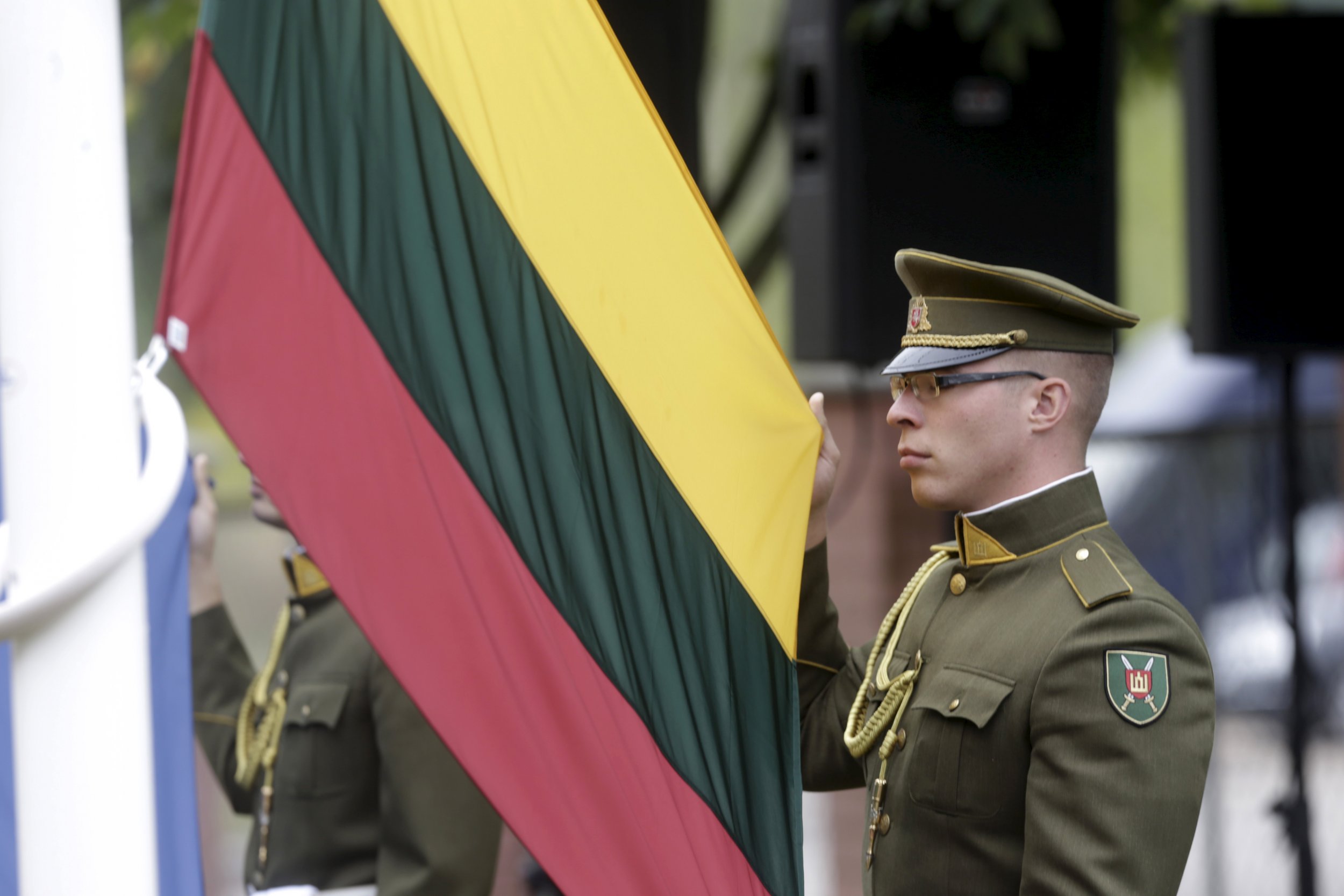
Lithuania's Ministry of National Defense has issued a citizen's manual on what to do in the event of war or another emergency.
The manual is the third such guide printed since Russia's annexation of Crimea from Ukraine in 2014.
"As we witness a growing interest and a wish of the society to actively contribute to national defense, we are committed to continue familiarising the society with the possibilities to actively resist an aggressor and ways to survive amidst war," Lithuanian Defense Minister Juozas Olekas said in a statement upon the manual's release.
Around 30,000 copies of the guidebook, a PDF of which is also available for free online, will be circulated to conscription and volunteer forces as well as some schools, universities, libraries and city councils. The new edition includes subsections on spotting Russian-made military kit such as the Russian T-90 tank, how to report such a sighting and how to react in other emergency situation without physically using firearms.
The guide includes advice on use of simple camping and scouting equipment and spotting hazardous items outdoors, such as landmines.
"These publications signal that the Baltic governments are seriously worried about the prospect of Russian aggression and particularly they do not underestimate the possibility of unconventional or hybrid warfare," says Agnia Grigas, an expert on Russian foreign policy and its effect on the Baltics at U.S. thinktank the Atlantic Council.
"Russia has been violating Baltic airspace and territorial waters for years but since 2014 acts of intimidation and aggression have spiked," she adds. "All three countries have populations of Russian minorities that Moscow has tried to inflame and exploit. The Baltic populations have relatively recent first-hand experience of Soviet occupation so they are naturally more concerned compared with rest of Europe."
Russia's Foreign Ministry has said it would never attack a NATO member state, which all three Baltic countries are. The Russian Defense Ministry's increase in unannounced military flights around Baltic airspace since 2014 and snap drills at its western borders, has cast doubt over such assurances.
Currently, NATO is in the process of deploying 4,000 multinational troops across the three Baltics and Poland, as a way to reassure all allies near Russia that collective security is a priority to all members.
Uncommon Knowledge
Newsweek is committed to challenging conventional wisdom and finding connections in the search for common ground.
Newsweek is committed to challenging conventional wisdom and finding connections in the search for common ground.
About the writer
I am a Staff Writer for Newsweek's international desk. I report on current events in Russia, the former Soviet Union ... Read more
To read how Newsweek uses AI as a newsroom tool, Click here.








